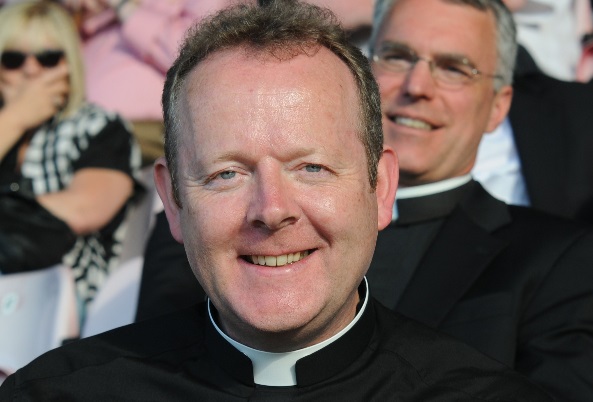
Politicians have a responsibility to support laws which uphold the dignity of every human person.
That’s according to the Catholic Archbishop of Armagh, Eamon Martin, and his auxiliary, Bishop Michael Router.
In a pre-election message titled, ‘Put People First’ they say that “laws and policies that fundamentally contradict the moral law, such as those that would violate the life and integrity of any person at any stage, from conception to death, are fundamentally unjust and must be opposed, not only on the grounds of faith, but also by virtue of right reason.”
They add: “We must make it clear to all those seeking our vote that we expect them to support the sacredness of all human life, the dignity of the person, and the centrality of the family.”

The vital role the elderly and grandparents can play in the life of the Church has been emphasised at a conference in Rome. The gathering on the pastoral care of the elderly entitled, “The Richness of Many Years of Life” was organized by the Dicastery for Laity, Family and Life and looked at how to deal with the culture of “discarding” the elderly, as well as their role in the family, and their particular vocation in the Church.
One of the participants, Catherine Wiley, founder of the Catholic Grandparents Association, said that church-going elderly people, including those who attend daily Mass, can experience loneliness and fall victim to depression. “Nobody calls on them, there aren’t enough priests anymore to call on them; they’re worried about their last will and testaments; they’re worried about end of life issues; they’re worried about their families not coming to see them and I’m thinking, ‘how can this happen in a community so close, so loving?’. But it’s happened”, she says.
She stresses that there are so many older lay people who have the wisdom, experience and the skills to be a vital asset in the community and it’s important to get them “on board”.
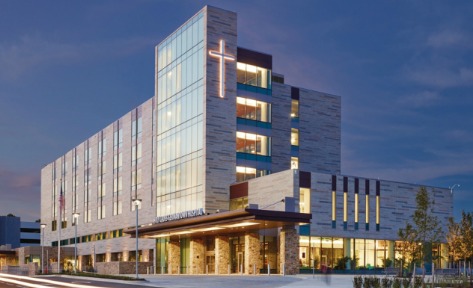
Almost 100 candidates have signed a pledge promising that, if elected, they would ensure the new national maternity hospital (NMH) would be built on state-owned land.
The petition is organised by the Campaign Against Church Ownership of Women’s Healthcare. It asks signatories to press for the state to disengage from a planned 99-year lease on a site at Elm Park in south Dublin, owned by St Vincent’s Healthcare Group. However, it does not clarify whether it wants the site seized by the State through a compulsory order, or whether it wants to build the hospital on a greenfield site.
The pledge states that those who sign it will support the establishment of “a state entity to ensure a new, secular maternity hospital under public ownership and control, that will be free to provide abortion and other services without the barriers of a Catholic ethos”.
Among the signatories are candidates for the Social Democrats, Sinn Fein, Labour and independents. No members of Fianna Fail or Fine Gael have signed. The first signatory was Róisín Shortall, co-leader of the Social Democrats.
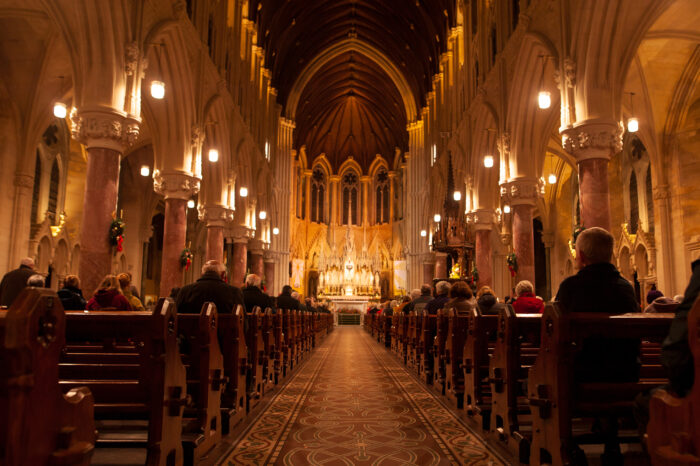
The Catholic Church should hold an annual Day of Reparation for the scandals, and also days of celebration for its achievements.
That’s according to retired Professor of moral theology, Fr Vincent Twomey.
Speaking at University Church, Dublin, on Wednesday evening, he said the Church in Ireland could learn from the example of Germany in recognising the horrors of the second world war. The event was co-hosted by The Iona Institute and the Notre Dame-Newman Centre for Faith and Reason.
He proposed that one of the institutions mentioned in the Ryan Report on abuse in industrial schools should be turned into a public memorial by a combined effort of both Church and State. He also proposed an annual day of public fast and abstinence on the part of priests and religious in reparation for both clerical and institutional abuse. “One day at the beginning of Lent – perhaps the first Friday in Lent – could be designated as a Day of Reparation. On that day the clergy (Religious as well as secular) would undertake a day of fasting and prayer, and go to confession, culminating in an evening Prayer Service of Reparation and a Celebration of Reconciliation in every Cathedral in the country.”
He added that reparation must be matched by more festive celebrations of the gift of God’s presence among His people, of the men and women of faith who devoted their lives to education and the care of the sick, both at home and abroad, of the great saints of Irish Christianity, and of “the astonishing artistic and intellectual achievements of the past”.

Rules and regulations prohibiting religious funerary rituals are being adopted across parts of China, as the government promotes “civilized secular” traditions, according to a news report.
Expanding the measures to suppress religious believers, authorities throughout China are enforcing policies that prohibit religious customs and rituals to be used during funerals. Xinjiang Muslims have been banned from commemorating the dead according to their faith, and Christians ordered to stay away from religion during burials.
The Regulations on Centralised Funeral Arrangement, adopted by the government of Wenzhou city’s Pingyang county in the eastern province of Zhejiang, came into effect on December 1, 2019. The new rules aim to “get rid of bad funeral customs and establish a scientific, civilized, and economical way of funerals.” One of the regulations states that “clerical personnel are not allowed to participate in funerals,” and only “no more than ten family members of the deceased are allowed to read scriptures or sing hymns in a low voice.”
Similar policies are being adopted elsewhere in the country.
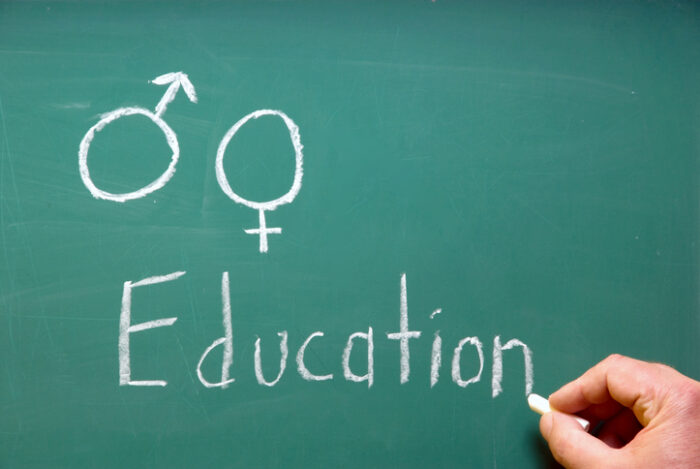
A national parents’ advocacy group has condemned the Welsh Government’s decision to make Relationships and Sexuality Education (RSE) a compulsory school subject in all schools in Wales.
From 2021, parents in Wales will no longer be able to withdraw their children from lessons on relationships and sexuality.
The Welsh Government began a project in October collecting feedback on changing the curriculum to remove the option for parents to stop children studying Religious Education (RE) and RSE, Education Minister Kirsty Williams said in a statement.
“After careful consideration of the responses, I can confirm that there will not be a right to withdraw from RE and RSE as part of the new curriculum. This change will require careful and sensitive implementation,” she said.
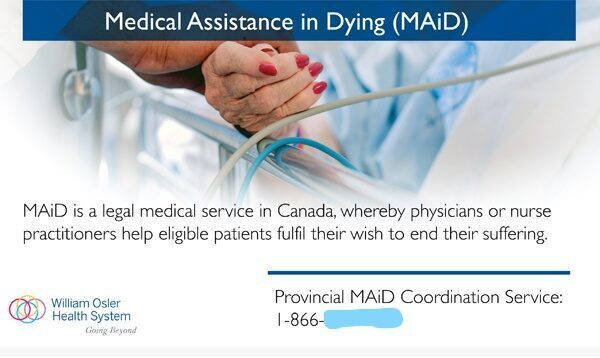
Vulnerable people on the Isle of Man will continue to be protected after politicians rejected efforts to weaken the laws against assisted suicide.
Ahead of the vote, Manx medics expressed overwhelming opposition. The Isle of Man Medical Society said it had found 85 per cent of working doctors would not support assisted suicide.
Society President Dr Jonathan Wilmot and executive committee chairman Dr May Shiu Chan said doctors feared that vulnerable people would be put under pressure to die.
“They were concerned that it would not in reality be a voluntary or free choice” the group said, adding, “vulnerable people would feel an obligation to opt for it to decrease the burden on relatives or that others may believe it was best for them and seek to influence their choice”.
In the debate, which followed one on suicide prevention, the Manx Parliament considered whether to push ahead with changing the law.
David Ashford proposed an amendment to say that the Parliament “notes the debate” and the “individual views” but removed the reference to preparing legislation.
Manx politicians unanimously backed his amendment.

Number 10 Downing Street needs a Family Policy Unit intent on figuring out whether and how government policy can limit or reduce the scale of family breakdown.
That’s according to Harry Benson of the marriage Foundation. Writing at conservativehome.com, he said it is a massive social justice issue simply because of the consequences for children.
“When the majority of break-ups occur ‘out of the blue’, with no obvious evidence of serious conflict or unhappiness, it makes sense to ask why we do so badly and how policy could reduce its prevalence.”
He gave three suggestions to guide the establishment of such a Unit.
First, he said a genuine family policy needs to be rooted in robust evidence.
“A Number 10 Family Policy Unit should encourage the development of UK research into mainstream family stability, instability, and its consequences.”
Second, he noted that government policy itself can and does influence the decisions couples make so a Family Policy Unit should look at how the Government encourages or discourages couples to make clear decisions about their future and to formalise those decisions.
Third, he said policymakers need the confidence to base their public policy on the same principles most of them apply in private.
He concluded by saying a, “Number 10 Family Policy Unit should have the key role of giving senior ministers the confidence to promote clarity of commitment – and therefore marriage and civil partnerships – as the centrepiece of a bold new family policy that boosts the odds of stability.”
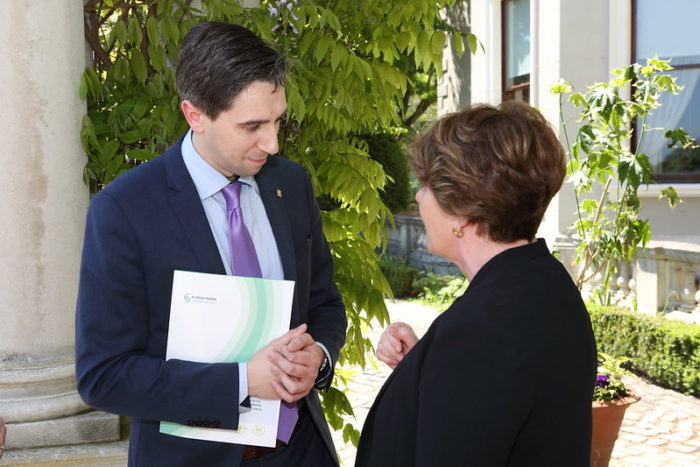
It has been revealed that monies ring-fenced for the Government’s maternal safety strategy, including fighting sepsis, have been diverted to pay for abortion.
The National Maternity Plan was developed in response to official recommendations following the death of Savita Halappanavar from sepsis in 2012.
The Irish Times has reported, however, that the plan has received only a fraction of the funds set aside for it after the Minister for Health, Simon Harris, used it to pay for the State’s new abortion regime.
The move prompted one of only two patient advocates to resign from the board of the HSE.
Mark Malloy has been campaigning for greater accountability in the health service ever since his own child was one of a number of babies who died unnecessarily at Portlaoise hospital.
He told the Irish Times he resigned because the latest HSE service plan could only fund a fraction – 12 per cent – of the €8 million a year that was promised for the National Maternity Strategy as the rest of the funds were used to pay for Minister Harris’ abortion regime.

Three different evangelical representative bodies in Spain have reacted to the central Government’s pledge to deny parents any right to opt their children out of classes and activities, including radical sex education, which might conflict with their moral and ethical values.
Education Minister Isabel Celáa had said in a press conference that “no one should commit the mistake of thinking that children belong to their parents”.
The new Equality Minister Irene Montero, of far-left party, Podemos, added that: “The children of homophobic parents have the same right as all other children to be educated in the fact that they can love whoever they want to, and to be educated in freedom, feminism and equality”.
In response, the Spanish Evangelical Alliance (AEE) denounced that “a code of values charged with ideology is being imposed on our children, which presents ideological dogmas as if they were absolute truths, creating a kind of ‘lay religion’”.
The Evangelical Council of the Region of Murcia, also expressed its “deep concern and disagreement” with Celáa’s words. The evangelical body in that region underlined that “parents have the right to educate children according to their ethical and moral convictions, this being a Constitutional right, which cannot be subject to changing policies or ideological proposals”.
Finally, the Federation of Evangelical Religious Entities of Spain (FEREDE), called to end what they believe to be “a false debate” because “it hurts us all, especially the children”. “Both Parents and the State should recognise each other as needed partners and collaborators for the satisfaction of the fundamental rights of children (…) Government and opposition should be careful not to sow mistrust between the schools and parents”.